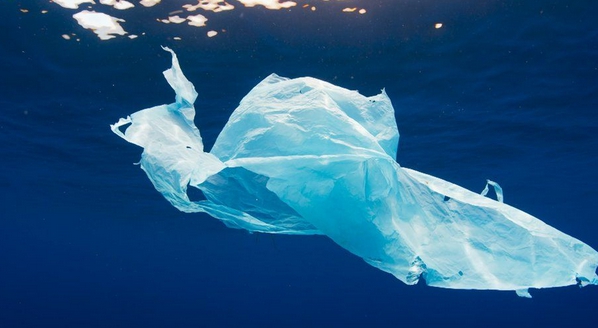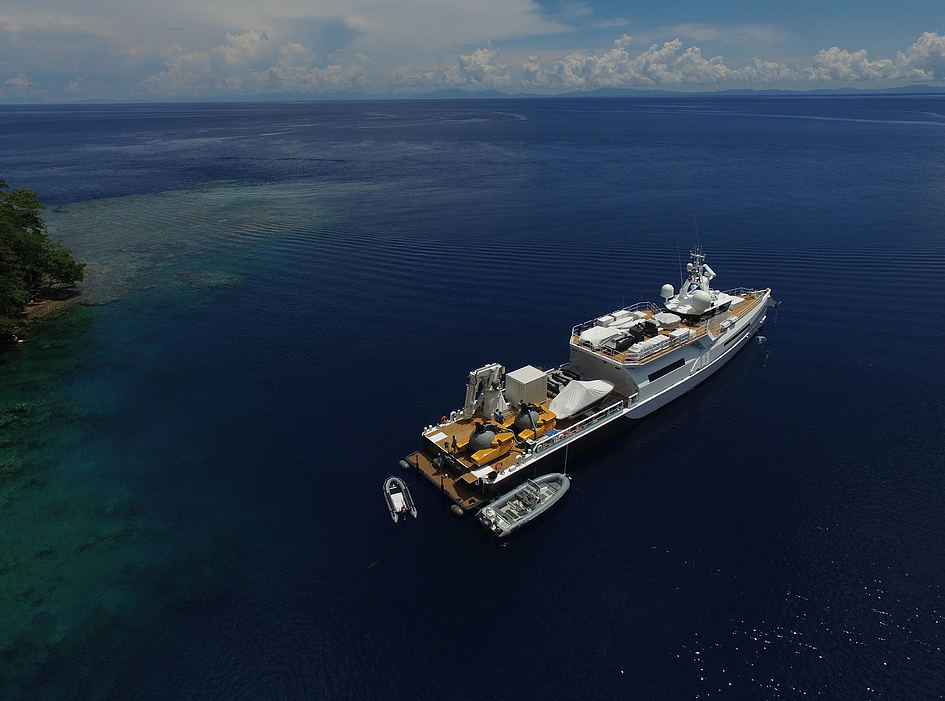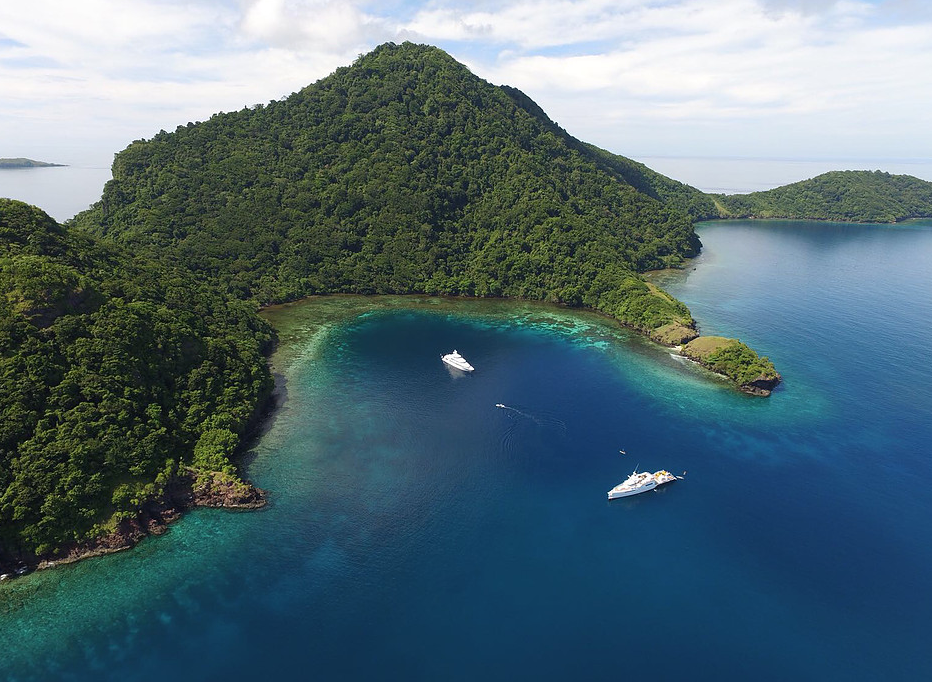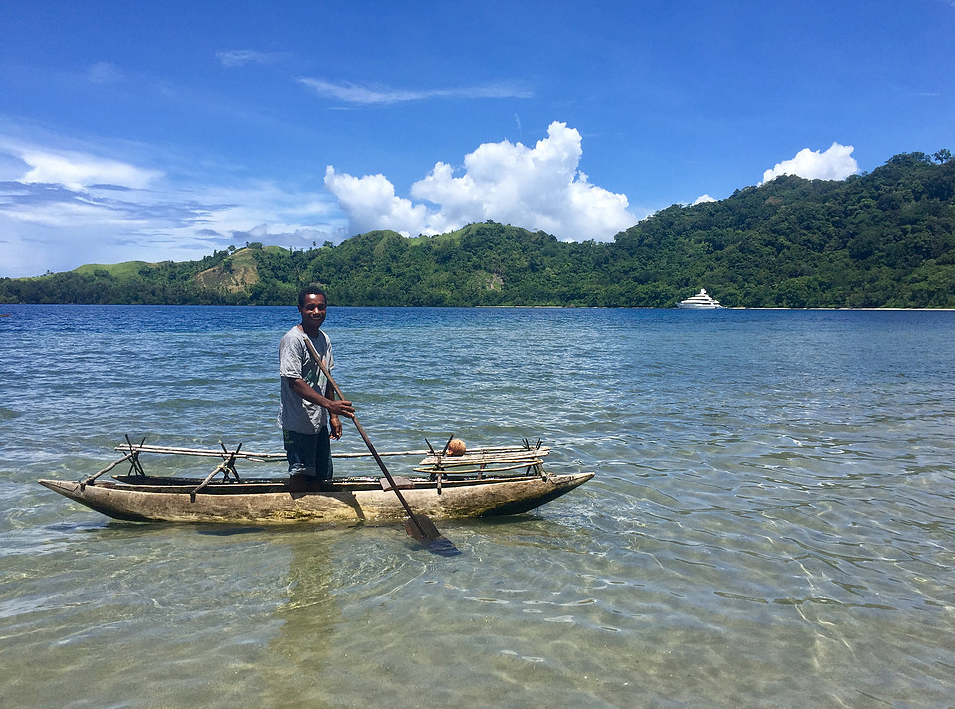Sustainable superyachting in Melanesia
The founder of Melanesian Luxury Yacht Services discusses culturally-sensitive superyacht visits…
As the growth of expedition yachting continues to define the superyacht landscape, more and more owners and charter clients are looking to travel to destinations not typically seen in a charter itinerary. Melanesia (an area comprising four countries: Fiji, Papua New Guinea, the Solomon Islands and Vanuatu) is attracting superyacht clientele for its striking scenery and rich cultural heritage. However, mass tourism to the region (largely as a result of cruise ships) is negatively impacting the local population in some areas.
For superyachts that wish to experience Melanesia in a culturally-sensitive and authentic way, there are cultural guides and experts who are dedicated to ensuring that there is sustainable ecotourism in the region. Angela Pennefather, who spent over 15 years working as a chef aboard superyachts, was born and raised in Papua New Guinea. She has spent the last three years working as a cultural guide and expedition leader for EYOS Expeditions in Melanesia, and is the founder of Melanesian Luxury Yacht Services.
Yachts who visit Melanesia want to see and experience an environment that they’ve never encountered before, and when it comes to cultural preservation, superyachts have a smaller cultural footprint when compared to cruise ships. “The problem with the cruise ships is that they come in such high-volume traffic and where there are 400 people on them, only 50 per cent have an interest in culture. This means there are 200 people that don’t have an interest in culture, and they are the ones that can do a lot of damage in a short period of time,” begins Pennefather.
“The advantage of superyachts is that we have one expedition leader or guide to 12 guests, so we can open their eyes to the area they are entering. This means they become far more culturally respectful, and they also take note of their responsibility as a visitor in the area.” The Trobriand Islands, for example, is a destination that cruise ships have been visiting for years, and Pennefather has noticed the negative impact of visitors on the local population. “We simply do not go there because the locals come across as aggressive when they are trying to get near the boats, and this is a direct result of cruise ship interaction.”
“The advantage of superyachts is that we have one expedition leader or guide to 12 guests, so we can open their eyes to the area they are entering. This means they become far more culturally respectful, and they also take note of their responsibility as a visitor in the area.”
Establishing sustainable ecotourism in the region does come with a huge amount of responsibility. Pennefather says that issues can arise when cruise ships orchestrate cultural performances in areas easily accessible to them, even if this not where they are historically carried out. Not only does this make the performances inauthentic, but it can also cause friction between tribes that are entering into different territories. When visiting the region in smaller groups, armed with the knowledge of those living on the islands, the superyacht clients are interacting with local people in the most natural way possible. Not only does this approach ensure cultural-sensitivity, it also is a much more authentic method to experience Melanesia. Visiting different tribes and regions on every trip also ensures that the positive economic impact of the visitors is shared evenly throughout the region.
During her time as a cultural guide, Pennefather has frequently had to educate clients on the misconceptions about the region. But once they are truly immersed in a culture that is often so different from their own, it’s an experience they will never forget. She highlights that new ‘luxury’ items are ones that money can’t buy, with clients wanting to go back to basics, reconnecting with their surroundings and families away from the noise of the 21st century. “What we lack in infrastructure we make up for in other ways. The people that come to our region, they come for something that money cannot buy and that is the appeal. The experience is the new luxury item, and that is what you cannot have in the Mediterranean.”
"The people that come to our region, they come for something that money cannot buy and that is the appeal. The experience is the new luxury item, and that is what you cannot have in the Mediterranean.”
The clients who are exploring these regions have often coveted such trips for a long time, but either haven’t known that they were possible, or haven’t felt comfortable travelling to such far-flung destinations. “They all say the same thing, ‘This has been on my bucket list’,” she remarks. The Melanesian Luxury Yacht Services team, in addition to being cultural guides, offer expertise on provisioning, logistics and travel itineraries. “People come with the intention of getting away from the world. It is all about having access to something that money can’t buy.”
In fact, she believes that those who are taking part in these trips are pleased to be able to give back to the environment in a smart, sustainable way. “Owners are loving it as they are combining their interests in philanthropy, with luxury and enjoyment.” It is this attitude that is – anecdotally at least – becoming more common among yacht owners and charter guests; a view echoed by Pennefather. “Mark Zuckerberg, for example, doesn’t want to be seen sipping champagne on a large superyacht, it’s not the image he wants to produce,” she says. “This new wave of people that are coming through. There is a huge opportunity to see more and more millennial billionaires doing productive things with their money because it feels good.”
Expedition yachting and moving away from the well-trodden grounds of the Mediterranean and the Caribbean can only be a positive thing for the market, attracting these ‘millennial billionaires’ to engage with the industry. However, when yachts visit these areas, it’s vital for their survival that owners and clients have an acute awareness of the possible impact they can have – good and bad. This is why cultural guides are invaluable to expeditions visiting the area, and protecting the environment for future generations to enjoy.
All images courtesy of Craig de Wit.
NEW: Sign up for SuperyachtNewsweek!
Get the latest weekly news, in-depth reports, intelligence, and strategic insights, delivered directly from The Superyacht Group's editors and market analysts.
Stay at the forefront of the superyacht industry with SuperyachtNewsweek
Click here to become part of The Superyacht Group community, and join us in our mission to make this industry accessible to all, and prosperous for the long-term. We are offering access to the superyacht industry’s most comprehensive and longstanding archive of business-critical information, as well as a comprehensive, real-time superyacht fleet database, for just £10 per month, because we are One Industry with One Mission. Sign up here.
Related news

Can conservation solve yachting's image problem?
Is it time to turn the superyacht philanthropy conversation on its head?
Owner
Related news
Can conservation solve yachting's image problem?
8 years ago
NEW: Sign up for
SuperyachtNewsweek!
Get the latest weekly news, in-depth reports, intelligence, and strategic insights, delivered directly from The Superyacht Group's editors and market analysts.
Stay at the forefront of the superyacht industry with SuperyachtNewsweek






